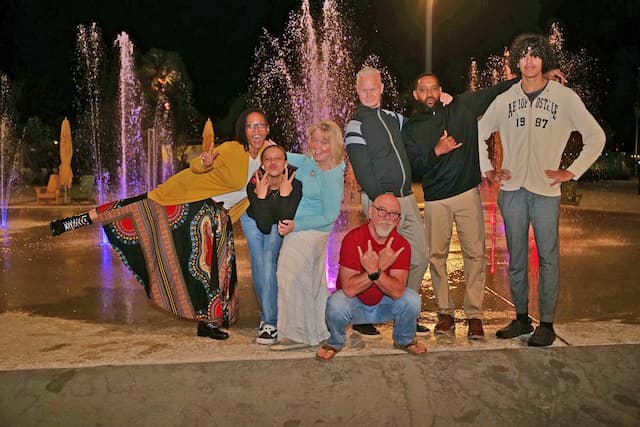When the Fighting’s Over … Stop Fighting
As I write, the 2020 presidential election has not been decided. There are already murmurings that, once the electoral votes are in and counted, the other side will likely contest it and initiate litigation. I hope my candidate wins, because, admittedly, I have a hard time accepting defeat—and you do too.
But have you ever known anyone who had a hard time accepting victory?
 On November 11, 1918, World War I ended with an armistice. Even before this, Germany was losing and everybody knew it. So both sides agreed to an armistice, meaning all hostilities would cease on 11:00 a.m. on November 11. But prior to the 11:00 deadline, what’s an army to do? There’s no point in continuing to shoot each other; the outcome has already been decided.
On November 11, 1918, World War I ended with an armistice. Even before this, Germany was losing and everybody knew it. So both sides agreed to an armistice, meaning all hostilities would cease on 11:00 a.m. on November 11. But prior to the 11:00 deadline, what’s an army to do? There’s no point in continuing to shoot each other; the outcome has already been decided.
It’s like playing baseball. You’re the home team, and when you come to the bottom of the ninth inning, you’re ahead. There’s no point in finishing the inning; you’ve won. It doesn’t matter how the bottom of the ninth is played. You’ve still won.

That didn’t matter to General John J. Pershing. He didn’t like the terms of the armistice. He thought the Germans agreed to it in order to buy some time and build up their strength, so Pershing was going to push on—right up to the 11:00 a.m. deadline. I’m no boxer, but I know if your opponent is staggering and about to fall over, there’s no need to wallop him with a knockout punch.
Word spread about the armistice, down to the lowest privates. Everyone knew the war would be over in a matter of hours. As General Pershing notified his commanding officers, he intentionally left it vague regarding what they should now do. And some chose to fight on—for no reason other than the “thrill” and glory of it.
For example, Major General Charles P. Summerall sent his men into battle, crossing the Meuse River, with these words: “‘I don’t expect to see any of you again, but that doesn’t matter. You have the honor of a definitive success—give yourself to that.’ Summerall was willing to sacrifice his men to defeat an enemy—who had already been defeated. As a result, there were over 1100 causalities—needless casualties.
Unfortunately, we face times when war is necessary. Conflict happens. But when a decision has been reached, when the conflict has been resolved, stop fighting. Go home.
Our sinful human nature is not always satisfied that a conflict is over. We want to see the other side suffer. But what’s gained? Absolutely nothing.
I’m going to over-simplify this, but World War II occurred in a large part because we did not handle World War I well. At the end of World War I, people wanted to see the defeated Germans suffer—really suffer—and the Germans did. But the German’s suffering and plight also fueled a great dissatisfaction among Germans that led to the rise of Adolf Hitler.
By contrast, after World War II, the Marshall Plan was enacted to help our defeated enemies rebuild and recover. This plan did not treat the war as no big deal, but by helping our defeated enemies, we made a positive difference for the world. Look at Japan and Germany today. We sought to help them recover, and it benefited all of us. Just look at our BMWs, Volkswagens, and Sony TVs.
Let’s bring this back to today. We need reconciliation, and we need it in so many areas of our lives. Reconciliation is more than just ending conflict; it’s more than making things right. It’s making things better.
- Politics. Our country is divided. One political party will win, but we can still work together. We must or we will see the defeat of our whole country.
- Relationships. Conflict happens, but more than just settling on an uneasy peace with the other person, let’s seek to overcome the conflict and build a better relationship. What does that look like? It looks like what God did for us.
- God. We were God’s enemies, yet through Christ, we were reconciled to Him. Set free. Forgiven. “Everything is from God, who has reconciled us to himself through Christ” (2 Cor. 5:18).
The president can pardon a convict. The convict’s crimes are erased, but that doesn’t mean the pardoned individual can move into the White House. As Christians, we are more than pardoned! Jesus pardons us and invites us to live with Him. That’s reconciliation: not just removing the problem, but making the relationship better!
We are called to be God’s conduits of reconciliation (2 Cor. 5:18). Yes, let’s do that with our political opponents, co-workers, neighbors, and family, but let’s certainly do with those who are separated from God. There’s no area of life where there’s a greater need for reconciliation.
When we get our lives reconciled with God, we are in a far better place to reconcile with others.
“Do not repay anyone evil for evil. Give careful thought to do what is honorable in everyone’s eyes. If possible, as far as it depends on you, live at peace with everyone” (Rom. 12:17-18).
“Pursue peace with everyone, and holiness — without it no one will see the Lord. Make sure that no one falls short of the grace of God and that no root of bitterness springs up, causing trouble and defiling many” (Heb. 12:14-15).
Subscribe to this blog or like our Facebook page. And share this post with others.
If you would like a printable version of this, check out PrintFriendly.com.










